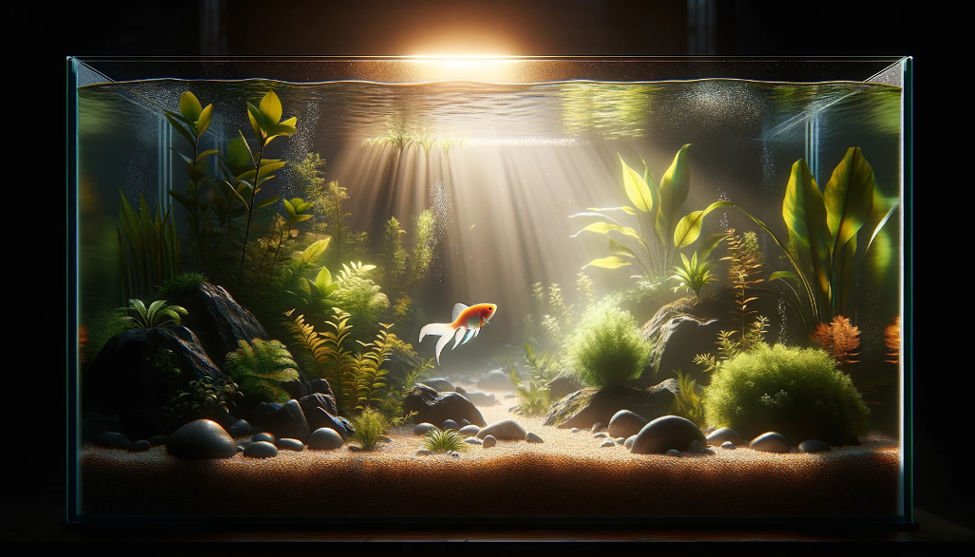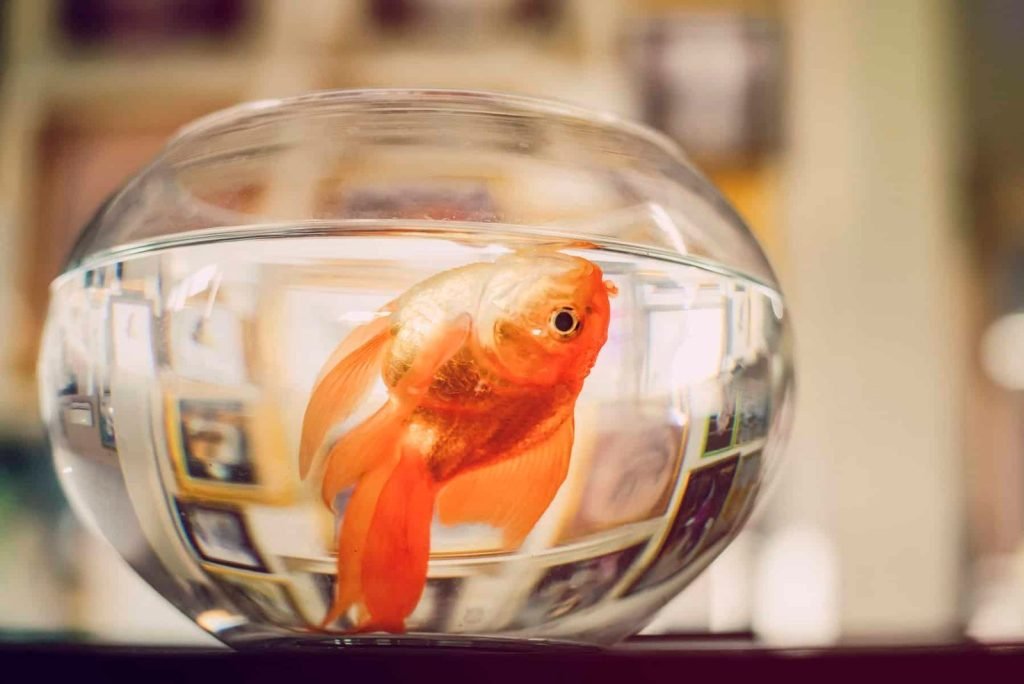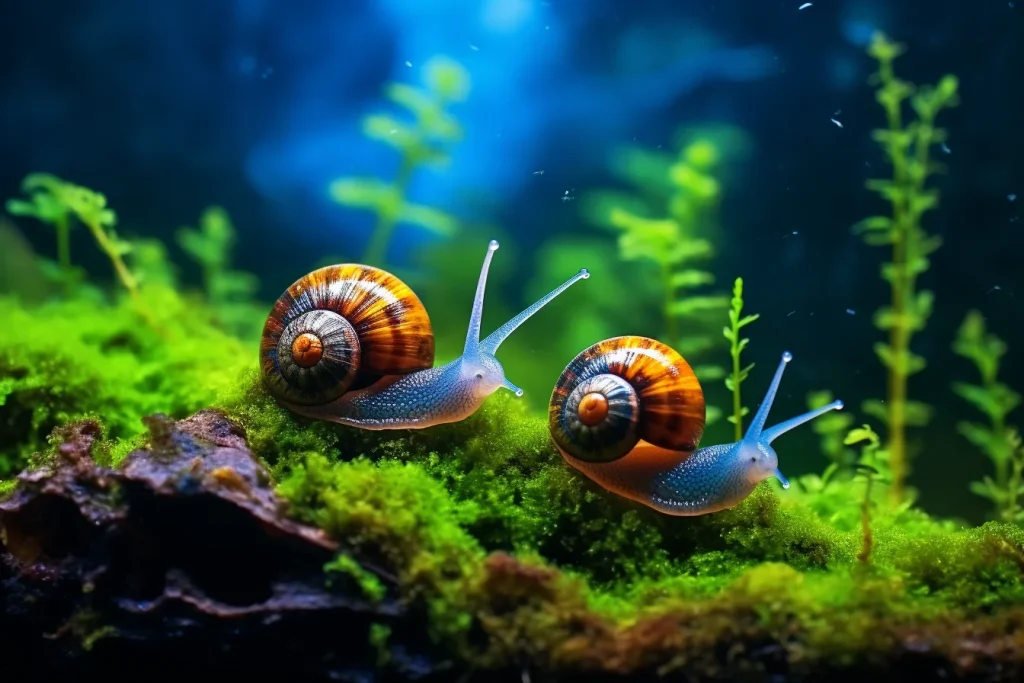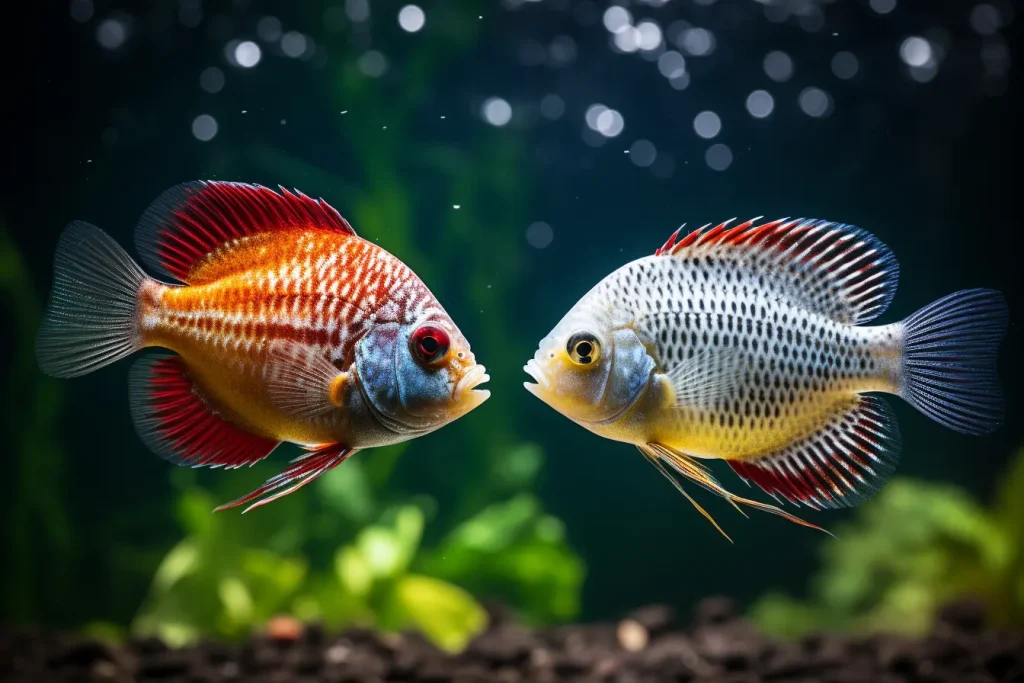Hey everyone in the aquarium community🐠, facing the hard decisions is part of our journey as fish caretakers. There might come a time when you need to say goodbye to your underwater friend, and it’s crucial to know how to do this gently. While it’s a tough topic, we’re here to guide you through how to euthanize a fish without clove oil, ensuring you can provide a peaceful end when all other options have been exhausted. Let’s walk through this process together with kindness and care at the forefront.”
When It’s Time to Say Goodbye
Sometimes, despite all the TLC you give, your scaly friends may fall ill with something that just can’t be fixed. It’s super tough, but euthanasia can be the kindest option to keep them from suffering.

How to Euthanize a Fish Oithout Clove oil
Baking Soda: The Gentle Goodbye
Alright, let’s talk about baking soda. It’s not just for baking; it’s actually a pretty gentle way to help your fish swim up to the big aquarium in the sky.
Getting Set Up
- Dissolve a tablespoon of baking soda in a cup of water from the tank.
- Move your fish to a separate container – think of it as a quiet little room where they can relax.
- Add the baking soda solution to the container, and give your fish some time to slip away peacefully. This usually takes about 10 to 15 minutes.
Why Baking Soda?
It’s a simple, stress-free way to say goodbye when you don’t have clove oil on hand. Plus, it’s pretty quick and painless.
Clove Oil: The Sleepy Send-Off
Clove oil is kinda like fishy anesthesia. It helps your gilled friends drift off to sleep so they can pass away without any pain or panic.
Here’s How You Do It
- Find a small container and fill it with tank water.
- Mix 1-2 ml of clove oil per liter of tank water in a separate jar until it’s nice and smooth.
- Slowly pour the clove oil mix into the container with your fish.
Just watch as they calmly drift off, ensuring a peaceful transition.
Making the Choice
Whether you go with baking soda or clove oil, the goal is to be as gentle and kind as possible. 🌼 It’s all about making a tough moment a little softer for both you and your fish.
A Few Things to Keep in Mind
- Get Advice: If you’re unsure, chat with a vet. They’re the pros and can give you the best advice.
- Quick and Painless is Key: We’re aiming for a peaceful, stress-free send-off here.
- Kindness Counts: It’s a tough time, but showing your fish compassion is what matters most.
Wrapping It Up

Wow, I know that was heavy, but you’re doing great. Deciding to euthanize a fish is all about love and not wanting them to suffer. So no matter which method you choose, do it with care. And hey, don’t forget, you’ve got a whole community of fellow fish lovers who’ve got your back.
Thanks for being a super caring fish parent! Your little underwater friends sure are lucky to have you. 🐟💙
FAQ: Understanding Fish Euthanasia
How do I know if my fish is suffering too much?
Look for signs like labored breathing, constant hiding, loss of appetite, open sores, or erratic swimming patterns. Consult a vet to help assess your fish’s quality of life if you’re uncertain.
Isn’t flushing a fish a quick way to end it?
Never flush a fish as a means of euthanasia. It’s inhumane and can cause pain and stress. Instead, use the humane methods discussed in this guide.
Can I prevent issues that may lead to euthanasia?
Preventive care is essential. Maintain clean water, offer a proper diet, and understand the common illnesses for your fish species. Regular checkups from a vet can also help.
Do I need to take my fish to the vet for euthanasia?
While a vet is the safest option for ensuring humane euthanasia, it’s not always feasible. That’s why we’ve outlined some methods you can perform at home with care.
How will I know if my fish has passed away?
The fish will stop breathing, and its gills will cease movement. Give it some time to ensure it has passed peacefully before handling.
This is difficult. Where can I find support?
You’re not alone in this. Online fishkeeping communities, local aquarium clubs, or your veterinarian can offer support and guidance during this tough time.



